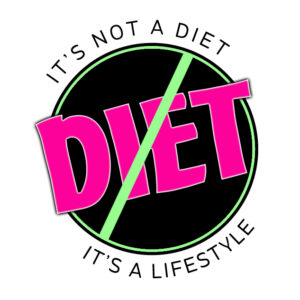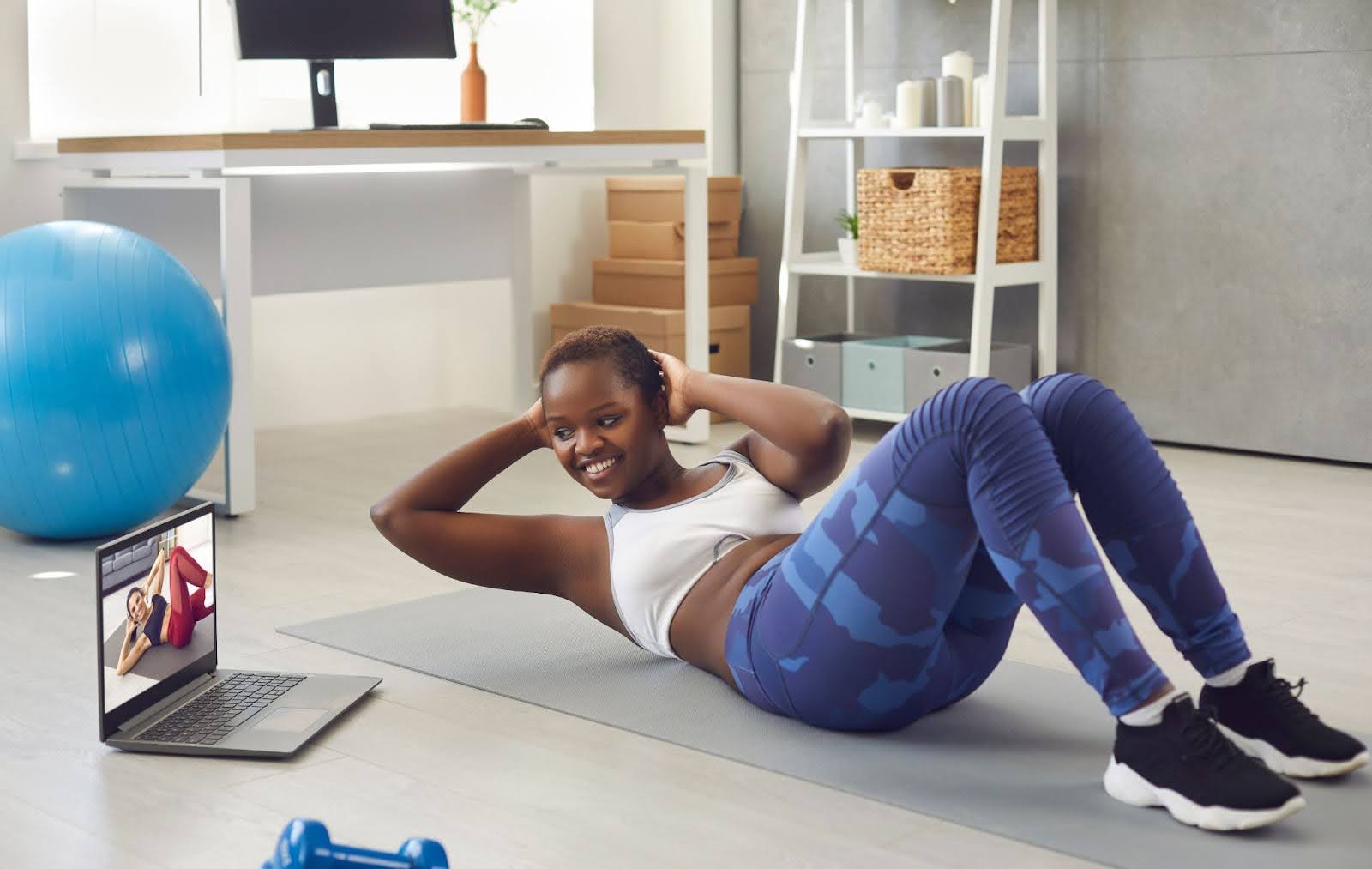
This month I want to focus on reflecting about your nutrition program. Believe it or not, we all have one. If you think you’ve been doing it right, wrong, or so so, let’s cross check it. I found a fabulous article from Precision Nutrition on just this so I’m highlighting (and adapting) this article so you can see where you stand.
8 Ways to Know if Your Nutrition Plan is Working

-
You feel satisfied after meals
Do you ever just feel hungry all the time? Like, you know you need to “get control”, but you can’t seem to “find the willpower” to close the bag of candy or stop picking off your kids’ dinner plates?
As we digest our food, the gut sends signals to the brain about how much energy we’ve consumed to trigger satiation (the feeling of fullness) so we know when we’ve had enough.
Unfortunately, it turns out that all it takes to override thousands of years of relationship building between gut and brain is a humble bag of Cheetos.
Processed food, with its extreme energy density and intense salty / sweet / fatty / crunchy / creamy tastes, tells our brain that we’ve hit the calorie jackpot: Eat until it’s gone! Stock up! You’ll have enough energy and nutrients to last for weeks!
Of course, for many people, the junk food never runs out, so you’re left eating and eating and eating with zero satiation (and almost zero actual nutrition).
What progress looks like:
With your new nutrition plan, you’re eating slowly. Choosing fresh foods. Leaving less room in your diet for processed foods that rev the appetite and never seem to fill you up.
Fresh fruit, vegetables, meat, fish, beans, and legumes are taking up new space in your body, nourishing you, helping you feel satisfied. They signal to your gut and brain that It’s OK. We are OK. We are safe and comfortable and fed. We can stop now.
Imagine, for the first time, feeling “full”. Not stuffed. Just satisfied. Feeling like you’ve had enough.
Your gut and brain are calm. No panic. No restless pacing to the pantry. You’re just… done. Without any worry.
Yep, this is all possible. In fact, this is what you’ll start to experience once your nutrition (and exercise) plan is on track. It’s an early sign of progress you can sense into even before you lose any weight.
(Quick note: If you’re a smaller — and younger — guy trying to put on muscle, this may not apply to you. Being hungry all the time may be a good thing. Keep eating and lifting!)
-
You have more energy

Maybe you can’t remember a time when you didn’t feel exhausted. Your alarm is your enemy. You don’t hit snooze; you literally punch the clock to make it shut up.
Mid-afternoon, you need a caffeine and sugar hit to keep your eyelids propped open, and by 8pm you’re crashing in your La-Z-Boy chair in front of the TV. Your brain feels like mush and your body like molasses.
Maybe your brain and body are getting too much processed food and too much sugar; maybe you’re borrowing energy from the future with stimulants.
Maybe you’re not getting enough vitamins, minerals, and other nutrients. Even small deficiencies in certain nutrients — which are much more common than you think — can drain your energy and fog up your focus.
What progress looks like:
One day, you wake up one minute before your alarm. Your eyes are actually open. You even feel… kind of… happy?
You don’t need seven shots of espresso throughout the day just to cope with your work inbox. You pay attention, even during the 3pm accounting meeting.
When you take your kids to the playground after dinner, you find yourself clambering up the climbing wall and slithering down the slide along with them.
A good nutrition plan gives you energy — constant, steady, all-day energy rather than a brief buzz and a crash. If you get it right, you’ll start experiencing this over time. Sometimes even before the scale needle starts to move.
-
You’re sleeping better

You know those nights when you just can’t seem to fall asleep? Or when you toss and turn in a weird, hallucinogenic, sleeping-but-not-sleeping state?
Sometimes, people don’t know how tired and sleep-deprived they are, because five hours of fitful flailing is their normal.
There can be many reasons for poor sleep: stress, aging, hormonal changes, being a new parent, getting too much light late at night, jet lag, and so on.
Nutrition and exercise can play a role as well. For instance, if you diet too stringently, over-train (or under-recover), amp yourself up with tough workouts, or over-eat heavy meals late at night, you may not sleep well.
You may drink too much alcohol and caffeine. You may not get enough protein (to make the right neurotransmitters), nor enough vitamins and minerals (ditto).
You may also have disrupted hormones (such as cortisol, growth hormone, thyroid hormone, and sex hormones such as estrogen and testosterone) from stress and poor eating habits, all of which are important for good and restful sleep.
What progress looks like:
Now, with your nutrition plan, you’re getting enough good stuff to make the brain chemicals you need.
You’ve started to be more moderate about your wine or cocktails at dinner, and, thanks to your newfound energy, laid off the afternoon espresso. Speaking of dinner, it’s a smaller portion that doesn’t leave you breathing in little huffs and give you nightmares about being chased by cheese.
In short, your body is no longer in an always-on-battle-stations-go state of chemical panic.
All of a sudden, you seem to wind down an hour before bedtime without a problem. You follow your sleep ritual and conk out easier than ever.
Remember: If you want to change your body and improve your health, sleeping well consistently is crucial. And hey, it just feels good too.
-
Your clothes feel just a little looser (or tighter)

Today’s the day. You reach into your closet, into the back, for that piece of clothing. You know, the one that almost never fits unless you’re massively dehydrated, wrapped in Saran Wrap, and holding your breath simultaneously.
Wow. It fits. Not just suck-it-in-and-suffer fits. But, like, really fits. It feels good. It looks good. No pulling fabric, no weird wrinkles, no strangling collars, no bulges of buttons or belts or bra straps.
Or maybe you’ve pulled out some other piece of clothing. The one that normally drapes over you like an oversized beach towel over a coat hanger. The T-shirt you can’t seem to fill out, the armholes with room to spare and a flapping curtain where you feel like billowing pecs should be.
Wow again. It doesn’t fit. And that’s great. Because your chest and arms and shoulders and back are now too muscular for it. The shirt is still flapping loose in one area, though: your newly whittled waist.
What progress looks like:
Muscle and bone are denser than body fat. When we build this lean mass, we often get heavier but smaller (at least in certain areas).
If you’re male, you may find your shoulders broadening, chest filling out, back wings fluttering, and a new case of “hockey tush” from muscular glutes… but your waist shrinking.
If you’re female, you may find that your scale weight goes up but your clothing size goes down (and you ace your bone density scan!).
-
You’re in a better mood

Have people secretly nicknamed you Stabby, Grumpy, Angsty, Miserable Cuss, or Party Pooper? Does it physically hurt you to smile?
The phenomenon of “hangry” is so well known that candy bar commercials joke about it, noting that “You’re not yourself when you’re hungry.”
You may also not be your best self when you’re deprived of the nutrients your brain needs to keep you sailing on an even emotional keel, without crashing into the rocks.
What progress looks like:
Improving our mental and emotional outlook with good nutrition can show up in surprising ways. Here are some of the things I experience when I counsel clients:
“I feel…
- “More confident.”
- “More peace with food.”
- “Less food preoccupation.”
- “More knowledgeable.”
- “Mentally more ‘on’, clearer-headed and less ‘fuzzy’.”
- “Happier and more positive.”
- “More open to trying new things.”
- “Motivated!”
- “Relieved”
- “Better body image”
- “Not as obsessed with the scale”
In part, these changes come from the experience of changing habits. When we try something, and succeed, we get a little jolt of inspiration that encourages us to keep going.
These changes also come from the nutrition itself: Our brains and bodies have the nutrients and chemical tools they need to do their jobs to regulate our emotions, to make our “happy neurotransmitters”, and to send those cheery and calming signals where they should go.
6. You’re stronger and have more endurance


Around the time you first start your nutrition overhaul, workouts might feel like a slog. Maybe you feel weak, uncoordinated and slow. Maybe you pick your dumbbells off the small end of the rack. And boy are you sore afterwards.
And then, gradually, you’re less sore. More of an “umph” getting out of bed than an “AAAAAUUUUGHHHH!!!!” You’re more zesty. Perhaps another set! you think, jauntily, suddenly full of beans. You eye the next dumbbell up.
What progress looks like:
- You’re using the same weight with more range of motion.A month ago, you couldn’t squat. Now those knees, hips, and ankles are bendin’ and behavin’ like Plastic Man. You can pick up your laundry, get off the toilet, and squat down to pick up your toddler like a pro! In another month, you might take on your other kid at basketball.
- Your muscles aren’t as sore. Intense exercise and new movements create micro-damage (tiny tears in muscle fibers) that we must rebuild. This process of repair is good; it’s what helps us get stronger, fitter, and more muscular, but in the early stages, it hurts. Inflammation goes up; you might get stiffness and swelling from fluid rushing in to help heal the damage. As you progress, and give your body lots of nutrients to rebuild, this inflammation decreases and the repair process speeds up.
- You can do more work overall.Whether it’s running, swimming, or cycling longer distances; lifting more weight for a longer workout; scrambling up a higher and tougher wall; or playing an extra round of tennis or golf; you’re simply able to do more stuff, more often. Good nutrition has improved your recovery and energy levels.
- You’re fresher and recover better.Again, you’re giving your body the stuff it needs to do its job of making you stronger, faster, better, and fitter. Your cells are sucking in oxygen, dumping waste products, making more enzymes, and overall high-fiving each other.
7. It feels more like a lifestyle than a “diet”


“Diets” are a chore. They’re another to-do that you superimpose over your busy life, and another boring, strict, overly complicated task you can’t wait to quit.
When we do quit; because of course we do, it’s temporary, right? We’re back where we started. Back “off the diet”. Back to processed foods, never-ending hunger, frustration, and fat gain.
What progress looks like:
Progress here happens when you’re just… living. You’re in a nice, natural, normal-day rhythm that doesn’t feel like being “on” or “off” anything.
Eating well stops being “A Thing” and just starts being your daily life.
- You naturally gravitate toward whole foods.You pick the salmon over the hot dog without even thinking about it. You think, “A fresh salad would be nice”, and you really mean it.
- You have a plan.Prepping meals in advance and keeping healthy backup options on hand is a regular part of your weekly routine now. You look for challenges and develop strategies for staying on track.
- You don’t binge or feel out of control with food anymore.Let me be clear: You still eat the birthday cake and the Christmas cookies and maybe go ahead and snarf the tub of popcorn at the movie theater. You don’t consider this “bad” or “guilt-inducing” any more. They’re just an occasional part of enjoying life. You savor them and then go back to eating mostly fresh, whole foods like you always do. No biggie.
Yep, this is also possible. It’s a natural and normal consequence of eating and exercising in a sensible and sane way. And it’s a sign of progress, regardless of what the scale is doing.
8. You no longer think of subtracting food
If you’re in a “diet mentality”, each day feels like a new battle to avoid the “bad foods”. So let’s flip that. Add, don’t subtract.
Don’t “avoid” your “junk food”.
Don’t “avoid” your prepackaged meals.
Don’t “avoid” dessert.
Just add so much healthy stuff — water, lean protein, fresh fruit and vegetables — that there’s less room or desire left over for food that doesn’t support your goals.
And at first, look for what you gain rather than what you lose. Like muscle. Strength. Confidence. Energy. Sanity.
Take the time to really check in with yourself to discover if you are hitting these 8 marks with your nutrition plan. Even during the holidays. No, I’m not kidding. 😉
Toodles,
Miriam Turner
Studio Sweat Dietitian









Comments - 0